
Biogen plans to resubmit its application for a higher dose of nusinersen after receiving FDA feedback, aiming to enhance SMA treatment efficacy.

Biogen plans to resubmit its application for a higher dose of nusinersen after receiving FDA feedback, aiming to enhance SMA treatment efficacy.

Ofatumumab shows promising efficacy in treating neuromyelitis optica spectrum disorder, significantly reducing relapse rates and improving patient outcomes.

The vice president of scientific engagement at the Alzheimer’s Association discussed the organization’s recently published first guidelines on blood-based biomarkers, highlighting accuracy, clinical use, and patient considerations.

Ionis reveals promising trial results for zilganersen, a potential first treatment for Alexander disease, aiming to transform patient care.
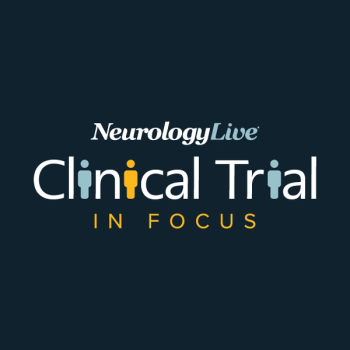
A new trial evaluates PIPE-307, a drug targeting M1 receptors, aiming to promote remyelination in relapsing-remitting multiple sclerosis patients.

Grace Therapeutics reveals promising results for GTx-104, an innovative IV treatment for aSAH, potentially transforming patient care in neurocritical settings.
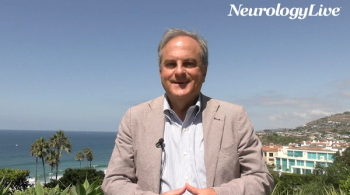
The psychiatrist and founder of the Stuttering Treatment and Research Society discussed the historical persistence of stuttering, treatment gaps, and the nuances of managing psychiatric comorbidities. [WATCH TIME: 3 minutes]

Scholar Rock navigates FDA hurdles for apitegromab, a promising treatment for spinal muscular atrophy, aiming for resubmission after addressing manufacturing concerns.

Dionne Morgan, MD, a sleep medicine physician at Baptist Health Miami Cardiac & Vascular Institute, provided commentary on World Narcolepsy Day, highlighting challenges in diagnosis and treatment, evolution in therapeutics, and combating comorbidities.

Tolebrutinib, a promising BTK inhibitor for nonrelapsing MS, faces a delayed FDA review, highlighting its potential in treating neuroinflammation.

At the 2025 STARS Research & Education Conference, Lisa LaSalle, PhD, professor at California State University, Monterey Bay, highlighted risk factors and care interventions for stuttering in children.

Here's some of what is coming soon to NeurologyLive® this week.

The director of NYU Langone’s Comprehensive Epilepsy Center highlighted recent progress in epilepsy care, spanning new therapies, gene-based approaches, mortality awareness, and improved pregnancy management. [WATCH TIME: 3 minutes]

Test your neurology knowledge with NeurologyLive®'s weekly quiz series, featuring questions on a variety of clinical and historical neurology topics. This week's topic is on care of trigeminal neuralgia.

Speech-language pathologist Lisa LaSalle, PhD, professor at California State University, Monterey Bay, highlighted the role of interdisciplinary collaboration in the management of stuttering.

Take 5 minutes to catch up on NeurologyLive®'s highlights from the week ending September 19, 2025.
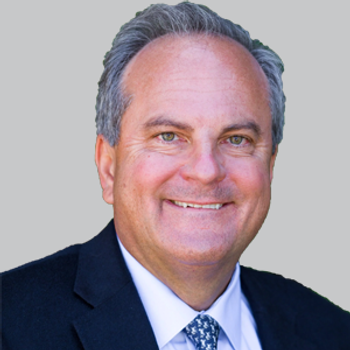
The founder of the Stuttering Treatment and Research Society (STARS) discussed the unmet needs in stuttering care, current management strategies, and the mission of STARS to drive education, collaboration, and treatment development.

Mind Moments®, a podcast from NeurologyLive®, brings you an exclusive interview with Michael Okun, MD. [LISTEN TIME: 14 minutes]

The founder of the Stuttering Treatment and Research Society (STARS) detailed current therapeutic strategies for stuttering, the role of dopamine pathways, and the pressing need for FDA-approved options. [WATCH TIME: 4 minutes]

SKY-0515 shows promising results in reducing mutant huntingtin protein in Huntington disease patients, paving the way for transformative treatment options.

The latest McDonald Diagnostic Criteria revisions integrate imaging, biomarkers, and laboratory testing to create a more accurate, globally applicable framework for earlier diagnosis in MS.

A groundbreaking study reveals the connection between GLP-1 hormones and brain inflammation in neuromyelitis optica spectrum disorder, suggesting new treatment avenues.

ShiraTronics reveals promising 12-month results from its neuromodulation device, showing significant migraine relief and improved quality of life for chronic migraine patients.
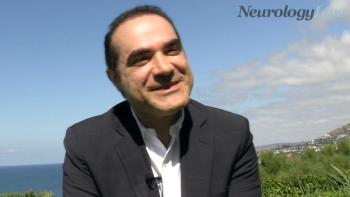
At the 2025 STARS Research & Education Conference, the assistant professor of neurobiology and behavior at Stony Brook University discussed the current understanding of stuttering. [WATCH TIME: 5 minutes]

New research highlights daridorexant's effectiveness in improving sleep for women experiencing insomnia during menopause, showcasing significant benefits in sleep quality.
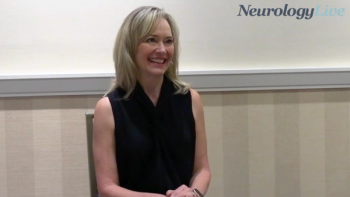
The CEO and cofounder of LSVT Global talked about how evidence-based therapies like LSVT LOUD and LSVT BIG can improve speech and movement in patients with Parkinson disease. [WATCH TIME: 5 minutes]

The director of the Adult Genetic Epilepsy Program at the University of Toronto shared “back-to-school” guidance on best practices in helping young patients with epilepsy transition to adult care.

New research revealed that mesenchymal stem cells from patients with secondary progressive multiple sclerosis may increase proinflammatory T-cell activities compared with those from healthy controls.

A recent study demonstrated that distinct aquaporin-4 changes in neuronal and glial synucleinopathies reflect different pathomechanisms and may warrant further investigation.

A recent trial reveals perispinal etanercept is safe for chronic stroke patients but shows no significant efficacy compared with placebo.